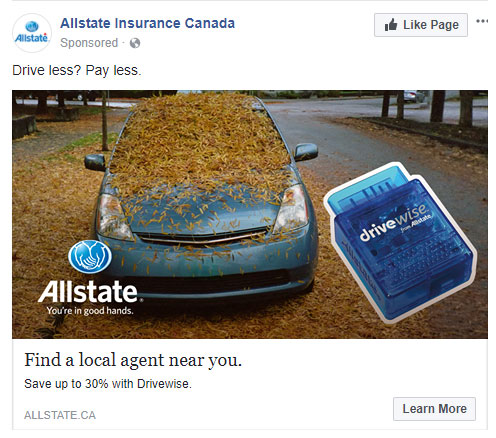
New Changes to Facebook’s Advertising Transparency
Facebook Advertising Getting Reworked
With the rise of issues related to fake news, the online world has been under intense scrutiny. Now, more than ever, users are questioning the reliability of information they receive online. As a result, social networks like Facebook have been forced to respond in order to regain trust from their audiences. Before we dig into the changes that Facebook is making in order to combat the rise of fake news, it is critical to understand two important concepts: Facebook Pages and Dark Posts.
Facebook Pages & Dark Posts
A Facebook Page is a public profile created for a business, brand, celebrity, charity or other organization that can be “followed” and “liked” by Facebook users. These pages allow brands to interact with Facebook users who have expressed interest in their product/service/brand. Organizations can post and share information and photos, and offer direct communication between a user and the brand. For example, this is a Facebook Page for our automotive brand Wheelscene.
A Dark Post is a Facebook ad that can only be seen by a specific targeted audience. These ads exist on Facebook but do not appear on the Page of the product/brand/person it is promoting. Only the selected audience can see these ads.

This is an example of a Dark Post. It may appear on your timeline, but not on the Page’s newsfeed.
Change is Coming
Facebook has recently revealed their “Advertising Transparency and Authenticity Efforts,” which will have a significant impact for both users and advertisers. Rob Goldman, Vice President of Ads at Facebook, said in a statement: “When it comes to advertising on Facebook, people should be able to tell who the advertiser is and see the ads they’re running, especially for political ads.”
Beginning this month, and gradually rolling out across the world, Facebook users will be able to click a button to view all ads that are running on Facebook, Instagram and Messenger for any given Page. Facebook will also require that all ads be linked to a Page before they can run. This will eliminate Dark Posts from Facebook as everyone will be able to see all active ads for any given Page. As part of these changes Facebook will also provide additional information about political advertisers to users, and require stricter verification of an advertiser’s identity before ads are approved.
What this Means for Advertisers
This announcement will bring huge changes for Facebook Advertisers for a few reasons. As Dark Posts have never been available for users outside of the target audience, these changes will force a higher level of transparency and accountability for advertisers. Now that all active ads for any given Page are completely accessible to anyone, there will be more opportunity for competitive research that hasn’t been available before. With the rollout of these new transparency and authenticity features it will even more important for advertisers to be honest with users. The elimination of Dark Posts puts added pressure on advertisers to be authentic with their messaging, and only release ads that they would be proud to put on display. This increased quality standard for Facebook ads may eliminate some competitors in the market, and allow better reach and more ad placement opportunities for those who promote and provide high quality material. This is big news for those legitimate advertisers that are sick of paying high CPCs to the Google-Facebook duopoly!
What this Means for Users
These changes are a big win for Facebook users, as they will now have more information to make informed decisions about what Pages they follow, and the ads they consume. The lines between fact and fiction online should become more defined, and the sources of ads more obvious. Promoted content that is misleading or incorrect should become less prevalent with these new rules in place, meaning users will be more likely to consume and trust the ads they see.
Final Thoughts
Overall, I think this change is a big win for the industry and its users. By raising the bar on what content is acceptable to promote, advertisers who have invested their time in quality branding and content will be rewarded. In the online world, the rules and best practices are always changing in order to adapt to what is happening offline. As philosopher Heraclitus once said, “Change is the only constant.” As advertisers we must embrace this ever-changing landscape.



